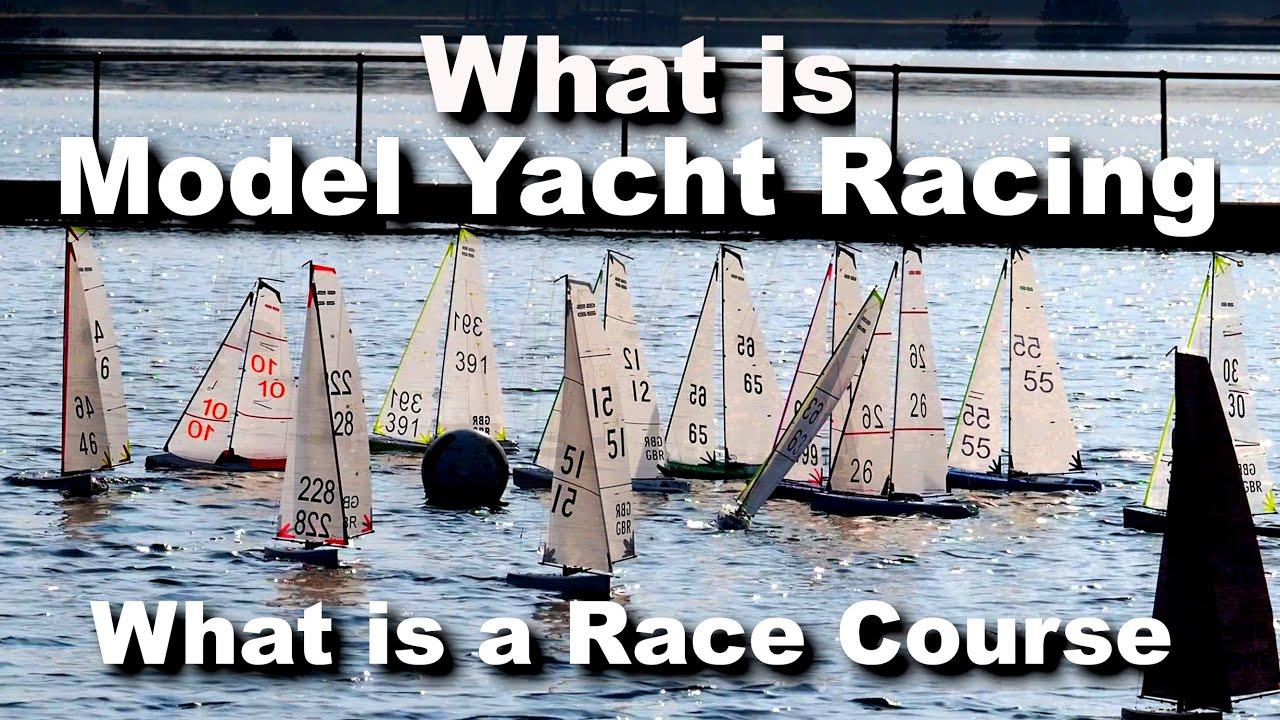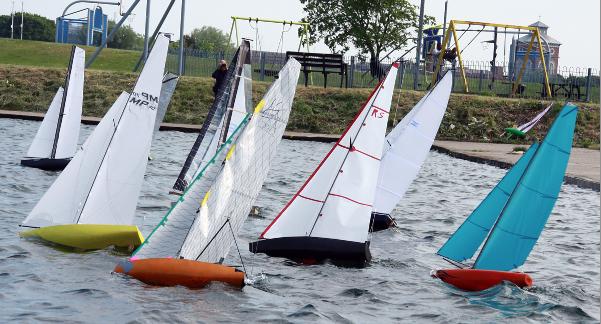Model Yacht Racing: A Challenging and Fun Hobby
Model yacht racing is a popular hobby that involves miniature sailboats racing against each other. This hobby originated in the 19th century and has since grown in popularity around the world. Model yacht racing is not only fun but also requires skill and strategy, making it a challenging and satisfying activity for participants. Model yachts come in different sizes and designs, ranging from small remote-controlled boats to larger traditional sailing yachts. Some popular types of model yachts include radio-controlled boats, pond yachts, and racing skiffs. Each type of model yacht has its own unique features and requires different skills and techniques to navigate. Model yacht racing has established rules and regulations that vary depending on the type of race. The International Radio Sailing Association (IRSA) governs radio-controlled model yacht racing, while traditional pond yacht racing often has its own set of rules. Most races follow a set course and have different point systems for determining the winner.
Mastering the techniques of model yacht racing.
Model yachts come in different sizes and designs, ranging from small remote-controlled boats to larger traditional sailing yachts. Some popular types of model yachts include radio-controlled boats, pond yachts, and racing skiffs. Each type of model yacht has its own unique features and requires different skills and techniques to navigate.
Model yacht racing requires skill and strategy to navigate through the water and outmaneuver competitors. Techniques such as tacking and jibing are important for turning and changing direction quickly and effectively. Racing skiffs require different techniques such as shifting weight to maintain stability and speed. There are various websites and shops where enthusiasts can purchase model yachts, accessories, and tools to customize their boats and improve their performance.

What techniques and skills are important for navigating and racing model yachts?
Techniques and skills such as good visual awareness, knowledge of wind direction, efficient sail trimming, quick decision making, and precise maneuvering are important for navigating and racing model yachts.
Model yacht racing categories and rules: a comprehensive guide.
There are different categories and classes of model yacht racing, each with its own set of rules and regulations and eligible boats. For example, radio-controlled model yachts are categorized by size and speed, while vintage pond yachts are classified by age and model. Here is a sample table of popular model yacht racing categories.
| Category | Eligible Boats | Rules and Regulations |
|---|---|---|
| Radio-controlled yachts | One-meter boats, Marblehead class boats, Ten Raters class boats | Governed by the International Radio Sailing Association (IRSA) |
| Pond yachts | Vintage boats from the late 19th to mid-20th centuries | Rules vary depending on the race and location |
| Racing skiffs | Small, lightweight boats with sails and outriggers | Rules vary depending on the race and location |
Most races follow a set course and have different point systems for determining the winner. Model yacht racing has established rules and regulations that vary depending on the type of race. The International Radio Sailing Association (IRSA) governs radio-controlled model yacht racing, while traditional pond yacht racing often has its own set of rules.
Various websites provide information on upcoming model yacht racing events and races, rules and regulations, and other resources for enthusiasts. Additionally, there are shops and online stores where people can purchase model yachts, sails, and other equipment.

What are the different resources available for enthusiasts of model yacht racing?
Enthusiasts of model yacht racing can access different resources such as local clubs, online communities, model yacht shops, and magazines for tips and advice on improving their skills and finding events.
Model yacht racing techniques for winning.
Model yacht racing requires skill and strategy to navigate through the water and outmaneuver competitors.
Techniques such as tacking and jibing are important for turning and changing direction quickly and effectively.
Racing skiffs require different techniques such as shifting weight to maintain stability and speed.
Model yacht racing is not just about having a fast and powerful boat; it also requires skill and strategy to win. Here are some of the essential techniques used in model yacht racing:
– Tacking: maneuvering the boat into the wind to change direction.
– Jibing: turning the boat away from the wind to change direction.
– Shifting weight: keeping the boat stable and speeding up by shifting body weight, especially when sailing skiffs.
– Reading the wind: adjusting sail and rudder angle to maximize the wind impact, especially in races over longer distances.
To improve their skills and techniques, model yacht racing enthusiasts often collaborate and learn from each other through websites, forums, and social media groups. They also attend workshops and regattas, where they can meet and learn from experienced sailors and participate in racing events. Additionally, there are resources such as sailing software and apps that can help sailors improve their racing strategies and tactics. There are also model yacht racing kits available for enthusiasts to build and customize their own boats.

What are some ways to improve skills and techniques in model yacht racing?
Some ways to improve skills and techniques in model yacht racing include practicing regularly, studying and learning from experienced racers, attending clinics and workshops, analyzing race videos, and experimenting with different boat setups.
Benefits and Joys of Model Yacht Racing
Participating in model yacht racing can provide numerous benefits to enthusiasts, such as:
- Improving hand-eye coordination: The ability to control the sail and rudder simultaneously requires good hand-eye coordination that gets better with regular practice.
- Developing spatial intelligence: Reading the wind direction, setting sails at the right angle, and maneuvering the boat to get the most wind impact all require spatial intelligence skills that can develop over time.
- Enhancing problem-solving skills: Model yacht racing also challenges the brain to find the shortest course and the fastest way to the finish line, helping improve problem-solving skills.
- Socializing with other enthusiasts: The hobby provides an excellent opportunity to meet individuals with similar interests and network with them while sharing tips, tricks, and stories from one model yacht racer to another.
- Fostering friendly competition: Model yacht racing is a friendly and supportive environment that encourages fair competition while building camaraderie with fellow enthusiasts.
Aside from these benefits, model yacht racing is a popular and engaging hobby that offers endless opportunities for fun and learning, both on and off the water.

What skills can be developed through participating in model yacht racing?
Skills that can be developed through participating in model yacht racing include hand-eye coordination, strategic thinking, problem-solving, communication, and teamwork.
Model yacht racing offers participants an experience that combines hobby building and competitiveness in a unique and exciting manner. This challenging yet relaxing hobby is enjoyed by people of all ages who share a love for racing miniature sailboats. The beauty and tranquility of natural bodies of water truly add to the ambiance of the pastime. Plus, with each race, a sense of accomplishment and self-satisfaction is achieved, driving people to continue their participation in this hobby for extended periods. Model yacht racing clubs exist worldwide, creating an active community and fostering a friendly atmosphere that encourages individuals to develop their skills and compete with like-minded individuals. Moreover, with the increasing advancements in technology, participating in model yacht racing is becoming more accessible worldwide. One can easily buy affordable yet high-quality models and join local racing clubs. The addition of online clubs and websites has allowed enthusiasts to connect with other racers, exchange news and stories. Model yacht racing is undoubtedly a unique experience that combines competition, skill-building, excitement, and fascination at every turn. It is easy to see why it continues to be a beloved hobby for hobbyists worldwide.
Conclusion
In conclusion, model yacht racing is an excellent hobby that offers a unique combination of skills, competitiveness, and fun. It is ideal for individuals who love both building things and competing with them. The challenges of maneuvering the sailboat through water work perfectly to enhance an individual’s mind’s problem-solving abilities. This engaging sport offers endless opportunities for fun and competition, both in the water and on the shore.



